
25 Techniques to Banish Back-to-School Bugs Before You Catch Them!
Summary
When kids head back to school, they often bring home germs that can make the whole family sick. This article offers 25 practical and creative techniques to keep those back-to-school bugs at bay. From boosting your family’s immune system and practicing good hygiene to maintaining a clean home and managing stress, these tips will help you protect your household from the seasonal wave of illnesses.
Reflection Questions
- What are some of the current habits or routines in my household that might be contributing to the spread of germs, and how can I improve them?
- How can I incorporate more immune-boosting foods and practices into my family’s daily routine?
- What steps can I take to ensure that my children understand the importance of hygiene and healthy habits, especially during the school year?
Journal Prompt
Reflect on a time when your family successfully avoided a seasonal illness. What practices or habits do you think made the biggest difference? Write about how you can apply those lessons to this school year to keep your family healthy and resilient.
When kids go back to school, they often bring home germs that get everyone sick—week after week! Below are twenty-five techniques to banish back-to-school bugs before they invade your home! Many are common sense, but others are a bit off-the-wall. If you have any tried-and-true methods for keeping colds at bay, let us know in the comments below.
25 Techniques to Banish Back-to-School Bugs Before You Catch Them!
#1 Boost Your Family’s Immune Systems

Let’s talk about giving your immune system a superpower boost this school year! First up, a balanced diet is your best friend. Think of your plate as a colorful palette—fill it with a rainbow of fruits and veggies, lean proteins like chicken or tofu, and whole grains such as brown rice or quinoa.
These foods are packed with vitamins, minerals, and antioxidants that keep your immune system strong and ready to tackle any germs that come your way. And don’t forget to stay hydrated!
Stay Hydrated and Get Some Sleep!
Water is your body’s natural cleanser, flushing out toxins and keeping everything running smoothly. Aim to drink water throughout the day, and encourage your kids to do the same, especially when they’re active at school. Now, let’s talk sleep—getting those 7-9 hours of shut-eye isn’t just for beauty; it’s crucial for your immune system, too. When you sleep, your body goes into repair mode, so make sure both you and your kiddos have a calming bedtime routine to help you drift off peacefully.
Turn Movement Into Family Bonding Moments

Finally, get moving! Whether it’s a family walk after dinner, a dance party in the living room, or a morning yoga session, regular exercise is a fantastic way to keep your immune system in tip-top shape. Plus, it’s a great way to spend quality time together and burn off some energy.
#2 Encourage Good Hygiene Practices
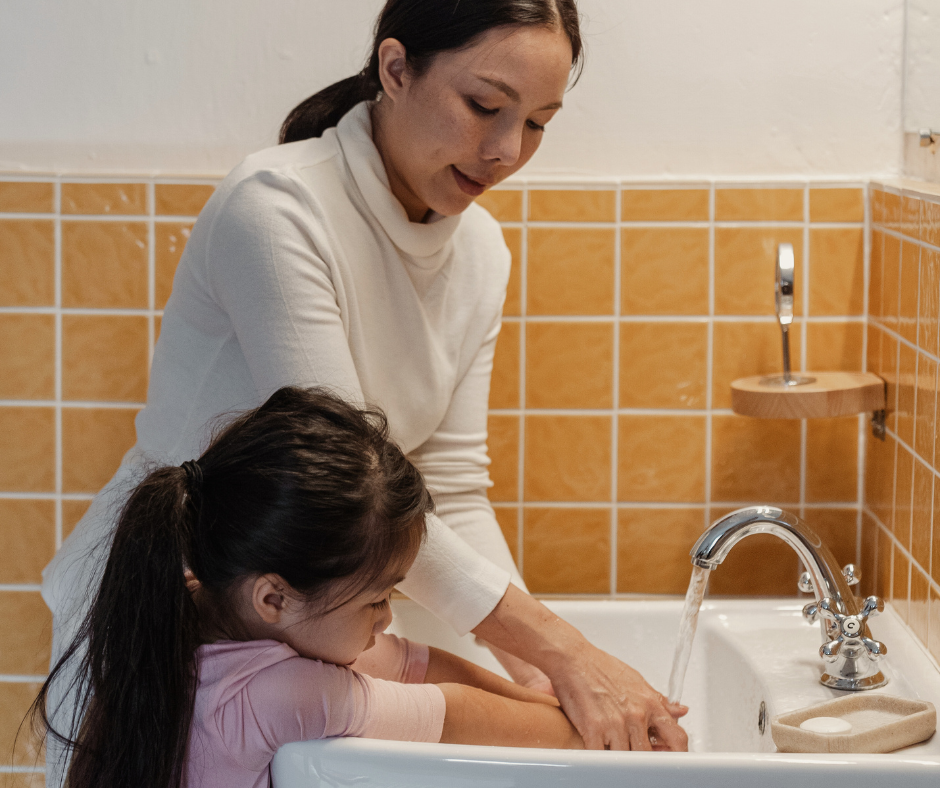
Let’s make handwashing fun for the kids! Sing a little tune or challenge them to a 20-second game while they scrub those hands with soap and water. It’s super important, especially after using the restroom, before meals, and right after they get home from school.
And when it comes to coughs and sneezes, remind them to cover up with a tissue or their elbow—no one wants those germs flying around! Teach them to toss tissues right away and wash their hands after. Oh, and one more thing—keep those little (and big!) hands off the face. We know it’s tough, but touching eyes, noses, and mouths is a fast track to getting sick. Make it a family challenge to see who can avoid face-touching the longest—winner gets to pick dessert!
#3 Keep Your Home Clean
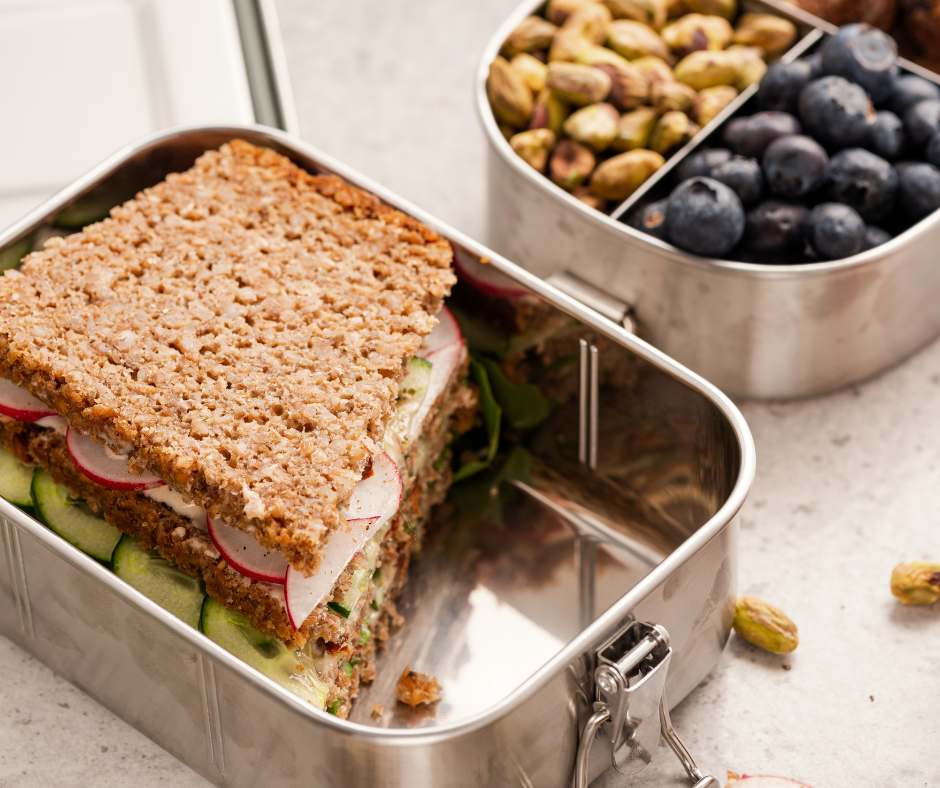
Keeping the home germ-free doesn’t have to be a chore! Just focus on those high-touch surfaces like doorknobs, light switches, and countertops—these spots are like germ magnets. A quick daily wipe-down with disinfectant can make a big difference.
And don’t forget about the school gear—backpacks, lunchboxes, and reusable water bottles can be sneaky spots for germs to hang out. Make it a habit to clean these items regularly, and maybe even involve the kids in a fun “clean your gear” session every week. It’s all about keeping those germs at bay and the whole family healthy!
#4 Stay Up-to-Date on Vaccinations

Vaccinations are like your family’s secret weapon against illness. Make sure everyone in the house is up-to-date, especially with the flu shot when that season rolls around. It’s a simple way to add an extra layer of protection for both you and the kids. Plus, it gives you some peace of mind knowing you’re doing everything you can to keep those nasty bugs out of the house. So, mark your calendars, and get those shots done—it’s quick, easy, and totally worth it!
#5 Promote Healthy Habits at School

Packing healthy lunches is a great way to keep your kids’ energy levels up and their immune systems strong. Think of it as fueling their little bodies with all the good stuff they need to power through the day—fruits, veggies, lean proteins, and whole grains. And don’t forget the importance of rest! Make sure your kiddos are getting enough sleep each night so they’re well-rested and ready to take on the day. A well-rested body is better equipped to fight off infections, so set up a cozy bedtime routine that helps everyone wind down and get those Zzz’s.
#6 Manage Stress

Stress can sneak up on both moms and kids, but there are some easy ways to keep it in check. Start by incorporating relaxation techniques into your daily routine—deep breathing, a few minutes of meditation, or even just spending some time outdoors can work wonders.
It’s all about finding little moments to relax and reset, which helps keep your immune system strong. Establishing a daily routine can also help manage stress—knowing what to expect each day can be super comforting for both you and the kids. Plus, a consistent routine can make your household run a bit more smoothly, which is a win for everyone!
#7 Recognize Early Symptoms

Catching those early signs of illness can make all the difference in keeping everyone healthy. Keep an eye out for runny noses, sore throats, or signs of fatigue in both your kids and yourself. If you notice any symptoms, take action right away—whether that’s making sure your little one rests, keeping them home from school, or loading up on fluids and healthy foods. The sooner you address these symptoms, the better chance you have of preventing the illness from spreading to the rest of the family. It’s all about staying one step ahead!
#8 Keep Sick Kids at Home

We all know how tough it is to keep the kiddos home when they’re not feeling well, especially with busy schedules, but it’s so important. If your child shows signs of illness, keeping them home gives them a chance to rest and recover, and it also helps stop the spread of germs to other kids (and their families!). Think of it as doing your part to keep the whole school community healthy. Plus, a day of rest with some extra cuddles can sometimes be just what they need to bounce back quicker.
#9 Teach Kids About Germs
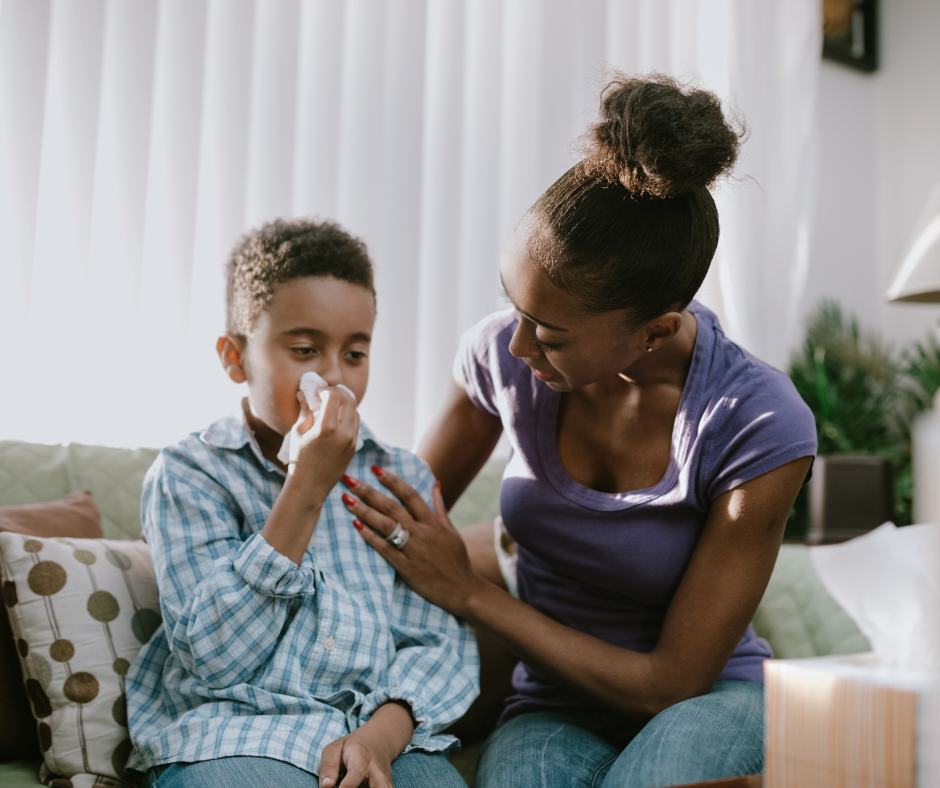
Kids are naturally curious, so why not turn that curiosity into a lesson about germs? Explain how germs spread and why it’s so important to practice good hygiene. When they understand the reasons behind washing their hands, covering coughs, and not touching their faces, they’re more likely to follow through with these healthy habits. Make it fun and interactive—maybe even a little “germ detective” game where they look out for potential germy spots at home or school. Empowering them with knowledge helps them take responsibility for their own health.
#10 Take Care of Yourself

As moms, we often put everyone else’s needs first, but remember—taking care of yourself is just as important! When you’re healthy and energized, you’re better able to take care of your family. Make time for self-care, whether it’s a quiet cup of tea in the morning, a quick workout, or even just taking a few minutes to breathe and reset. Don’t wait until you’re run down—be proactive about your health, and you’ll be in a better position to keep the whole family healthy, too. After all, you’re the heart of the home, and keeping that heart strong is key!
#11 Use a Humidifier
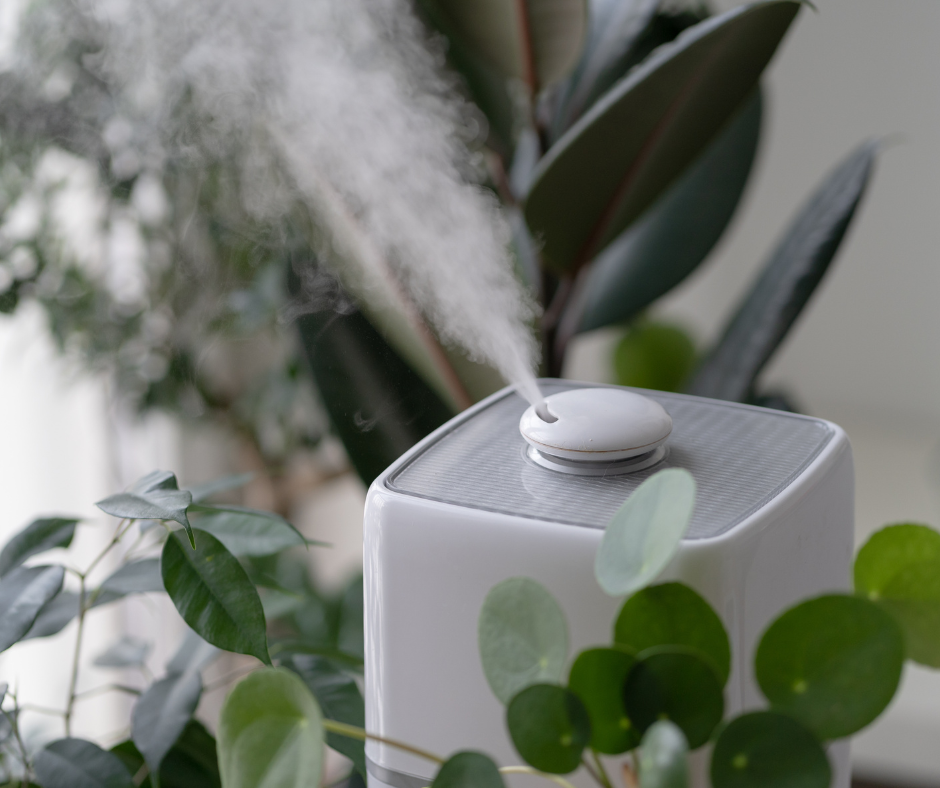
A humidifier can be a real game-changer during the colder months when the air gets dry. Keeping the humidity in your home at an optimal level (30-50%) helps keep your nasal passages moist, making it harder for viruses to take hold. It’s especially helpful at night, keeping everyone’s airways happy and healthy. Plus, it can make your home feel more comfortable, especially when the heaters are running. Just be sure to clean the humidifier regularly to prevent any mold or bacteria buildup—clean air is happy air!
#12 Consider Essential Oils and Aromatherapy
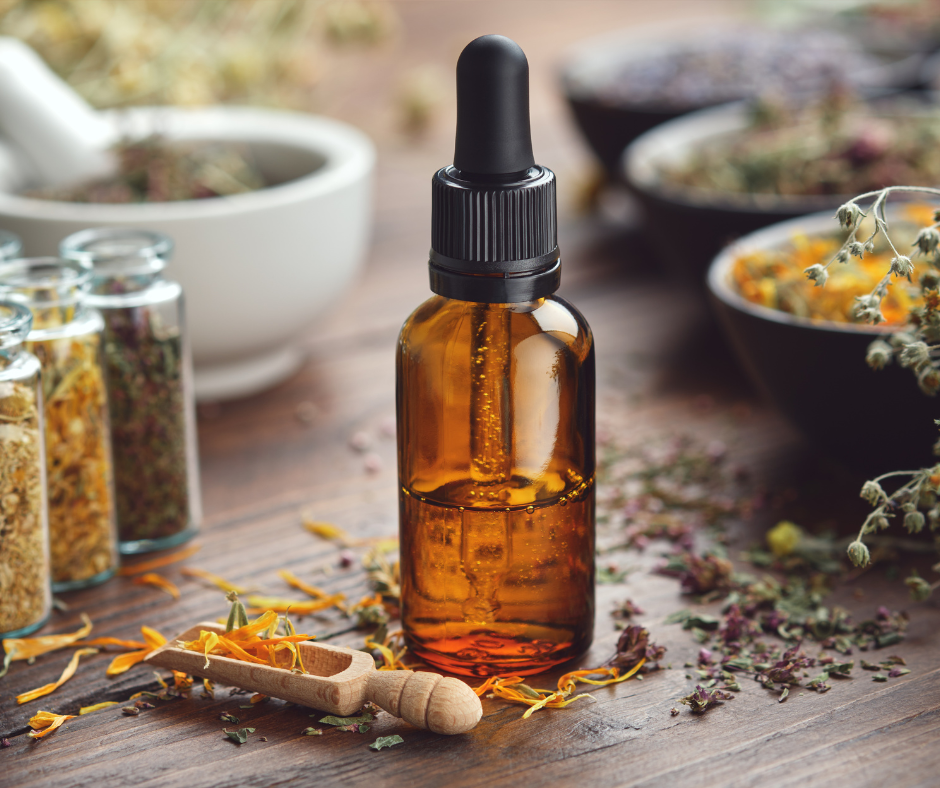
Essential oils aren’t just for making your home smell nice—they can actually help purify the air and support respiratory health, too! Oils like eucalyptus, tea tree, and lavender have natural antimicrobial properties that can give your immune system a little boost.
Be Safe While Using Essential Oils; They Can Be Dangerous
However, it’s important to remember that essential oils can be potent and potentially dangerous, especially for kids. If you choose to use them, always dilute the oils properly before applying them topically, and avoid using them on or near young children’s faces. When diffusing oils, ensure the room is well-ventilated, and never leave a diffuser running unattended, especially in a child’s bedroom.
It’s also wise to avoid using certain oils that can be irritating or harmful to kids, such as peppermint or eucalyptus unless advised by a healthcare professional. Keep all essential oils out of reach of little hands, and consider consulting with a pediatrician before introducing any new oils into your home routine. With these precautions in place, you can safely enjoy the benefits of essential oils while keeping your family’s health a top priority.
#13 Irrigate Those Nasal Passages!
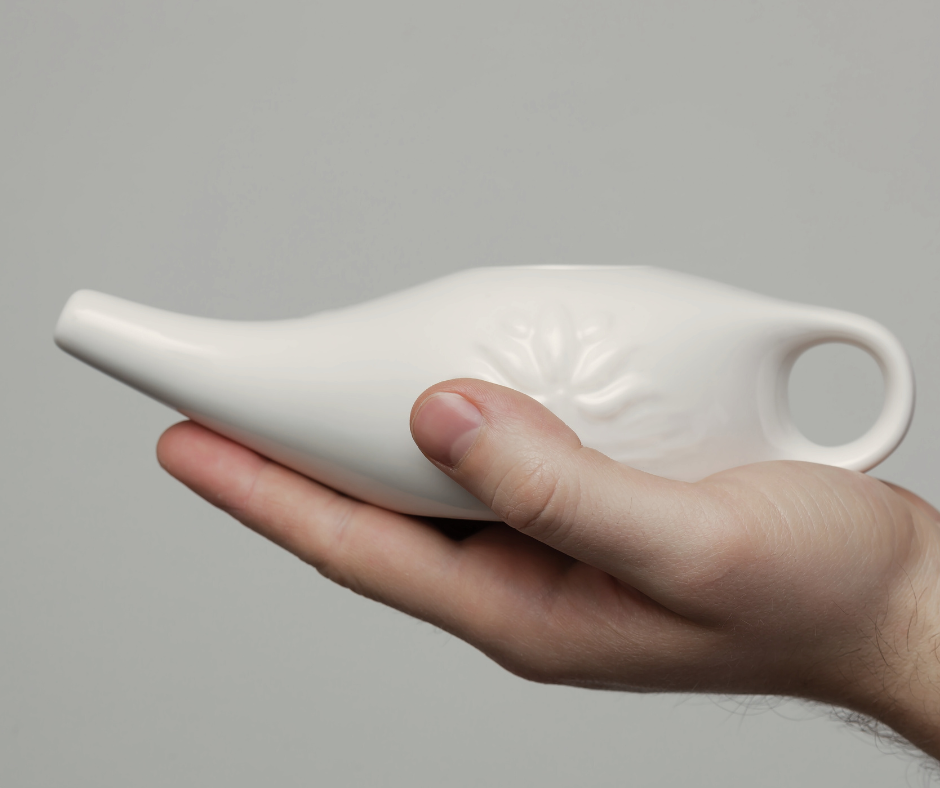
Nasal irrigation might not sound glamorous, but it’s a great way to flush out germs and allergens before they have a chance to cause trouble. Using a saline nasal spray or a neti pot can help keep your nasal passages clear and moisturized, which is especially helpful during allergy season or when the weather turns cold. It’s a quick and easy habit to add to your routine that can make a big difference in preventing those pesky colds from taking hold. Plus, it’s something the whole family can benefit from!
Fuel your creative fire & be a part of a supportive community that values how you love to live.
subscribe to our newsletter
*please check your Spam folder for the latest DesignDash Magazine issue immediately after subscription

#14 Take Probiotics

Probiotics are like little helpers for your gut—and a healthy gut is closely linked to a strong immune system. Adding probiotic-rich foods like yogurt, kefir, or sauerkraut to your diet can help maintain a balanced gut microbiome, which in turn helps your body fight off pathogens. You can also consider a probiotic supplement if you’re looking for an extra boost. It’s a simple way to support your overall health and keep those immune defenses strong, helping you and your kids stay healthy all year long.
#15 Invest in an Air Purifier with HEPA Filter

An air purifier with a HEPA filter can be a fantastic addition to your home, especially during cold and flu season. These devices help reduce airborne contaminants like bacteria and viruses, making the air you breathe cleaner and healthier. It’s especially useful if someone in the house is already feeling under the weather, as it can help prevent the spread of illness to others. Place it in a common area or in bedrooms to create a cleaner, safer environment for everyone.
#16 Limit Sugar Intake

We all love a sweet treat now and then, but keeping sugar intake in check can do wonders for your immune system. High sugar levels can suppress your body’s ability to fight off infections, so it’s a good idea to reduce sugary snacks, especially during peak cold and flu season. Instead, focus on whole foods that provide natural sweetness, like fruits, which also pack in vitamins and antioxidants. By cutting down on sugar, you’re helping to keep everyone’s immune systems in fighting shape, ready to tackle whatever comes their way!
#17 Wear a Mask in High-Risk Situations
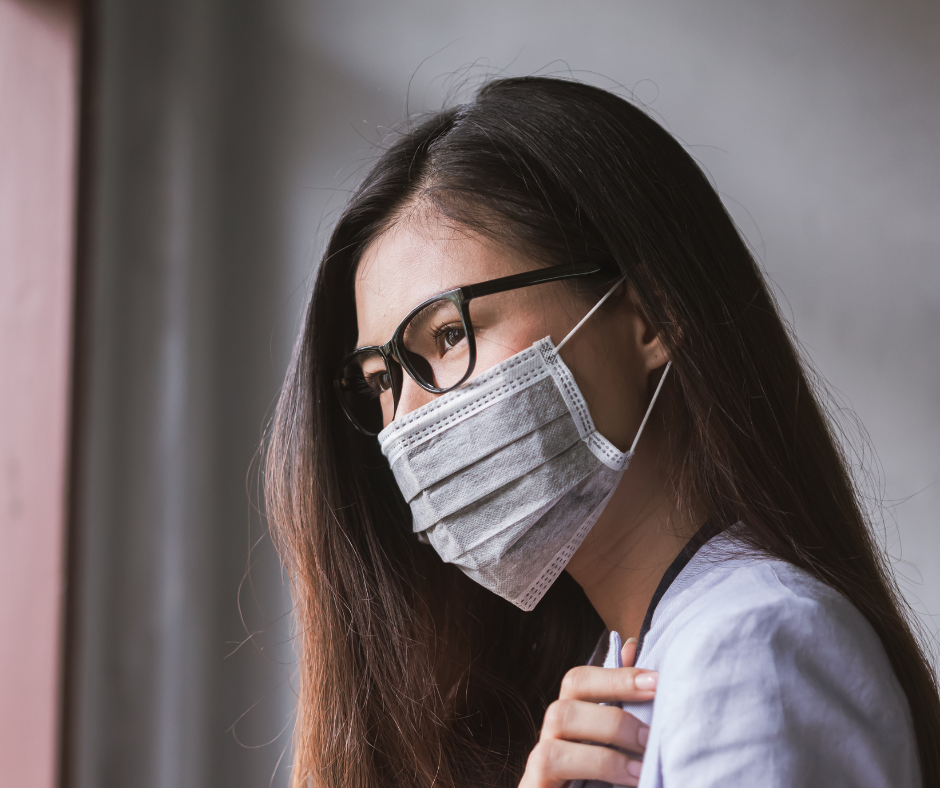
Masks have become a part of our lives, and they’re a smart choice in high-risk situations, like crowded indoor places or when someone in the house is feeling under the weather. Wearing a mask can significantly reduce the risk of airborne transmission, making it a simple yet effective way to protect yourself and others.
Keep a few masks handy for those situations when you might need a little extra protection, and don’t forget to encourage your kids to wear them when necessary, too. It’s a small step that can make a big difference in staying healthy.
#18 Implement a “No Shoes in the House” Policy
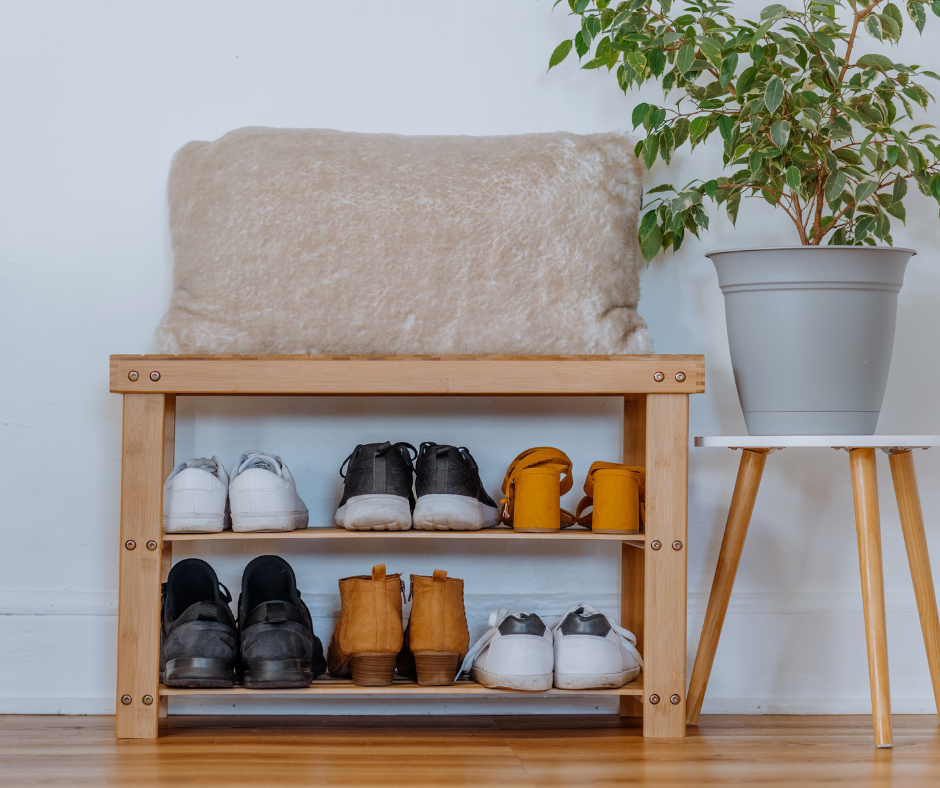
Shoes can bring in all sorts of germs from outside, so consider starting a “no shoes in the house” policy. It’s an easy way to keep those outdoor germs at bay and create a cleaner living space. Set up a spot by the door where everyone can leave their shoes as soon as they come in, and maybe even provide some cozy slippers to wear inside.
#19 Practice Dry Brushing

Dry brushing might be something you’ve heard about in the beauty world, but it’s also great for boosting circulation and supporting your immune system. It’s a quick and easy practice that involves gently brushing your skin with a natural bristle brush before you shower. This helps stimulate the lymphatic system, which is key in defending your body against illness. Plus, it leaves your skin feeling soft and refreshed—talk about a win-win!
*Only do this to yourself; check with your child’s pediatrician before trying any health and wellness trend.
#20 Focus on Lymphatic Health

Your lymphatic system plays a huge role in keeping you healthy, so giving it some extra love can really pay off. Gentle massage, particularly around the neck and armpits where lymph nodes are located, can help stimulate lymphatic drainage and support your immune system. Regular movement, like walking or stretching, also promotes lymphatic circulation. It’s all about keeping things flowing smoothly so your body can effectively fight off any invaders. Adding a few lymphatic-friendly habits to your routine is a great way to keep your health on track.
*Only do this to yourself; check with your child’s pediatrician before trying any health and wellness trend.
#21 Create a Sick Zone

When someone in the family isn’t feeling well, setting up a designated “sick zone” can help contain germs and keep the rest of the household healthier. Pick a cozy spot with everything they might need—tissues, hand sanitizer, a blanket, and maybe even a few comforting items like a favorite book or stuffed animal. This way, you’re minimizing the spread of germs while making sure your little patient has everything they need to rest and recover. It’s a small step that can make a big difference in keeping everyone else healthy.
Join us for the focus & Flex challenge
#22 Encourage “Hands-Off” Face Habits
It’s so easy to touch your face without even thinking about it, but breaking that habit can really help reduce the spread of germs. Make it a fun challenge for the whole family—who can go the longest without touching their face? Give out little rewards or keep track on a chart to make it engaging for the kids. By practicing this habit, you’re helping to protect yourself from the germs that are all too easy to pick up, especially when out and about. It’s a simple change that can have a big impact on your health.
#23 Use Natural Antimicrobials

Incorporating natural antimicrobials like garlic, ginger, and honey into your family’s diet can give everyone’s immune system a little extra boost. These ingredients have been shown to help combat infections and support overall health, making them a great addition to your meals and snacks.
Whether it’s adding a bit of fresh ginger to a smoothie, some garlic to your dinner, or a spoonful of honey in tea, these small changes can help keep your family’s immune systems in top shape. Plus, they add delicious flavor to your food—bonus!
#24 Color Code Household Items

Color-coding household items like towels, cups, and utensils can be a simple yet effective way to prevent the spread of germs, especially when someone is sick. Assigning each family member their own color helps keep things organized and reduces the risk of cross-contamination. It’s a small habit that can make a big difference, and it can even be fun for the kids to pick out their own color! By keeping things separate, you’re helping to keep everyone in the house healthy.
#25 Schedule a Post-School Wind Down

After a busy day at school, it’s important for kids (and moms!) to have some time to wind down and relax. Whether it’s a few minutes of quiet reading, a calming activity like coloring, or just some downtime in a cozy spot, this time allows everyone to decompress and reduce stress.
Chronic stress can weaken the immune system, so helping your kids find a way to relax can contribute to their overall health. Plus, it’s a great way to transition from the school day to family time, making the evening more peaceful and enjoyable for everyone.
Final Thoughts on Keeping Your Family Healthy This Fall
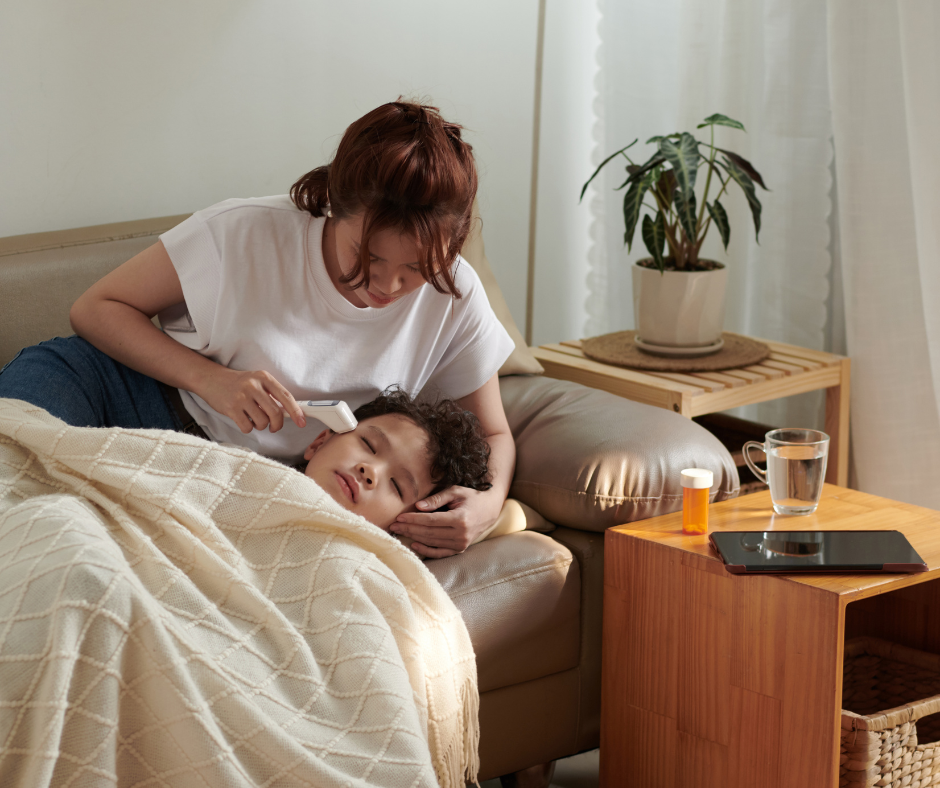
As parents, it’s easy to put everyone else’s needs before your own, but it’s crucial to remember that your health and well-being are just as important as anyone else’s. Taking time off when you need it isn’t just about self-care—it’s about being the best version of yourself for your family. By prioritizing your health, you’re setting a powerful example for your children, showing them that taking care of oneself is essential. So, don’t hesitate to rest, recharge, and take the time you need; your family will thrive when you do.








